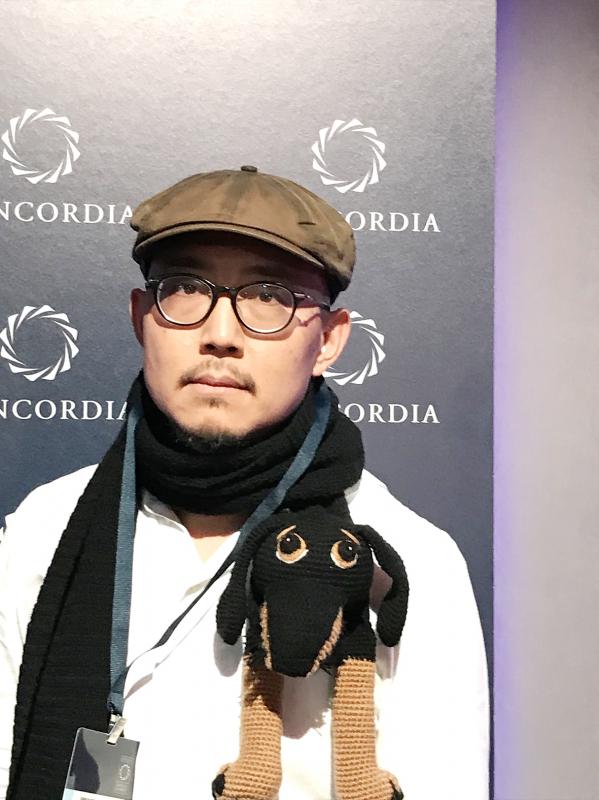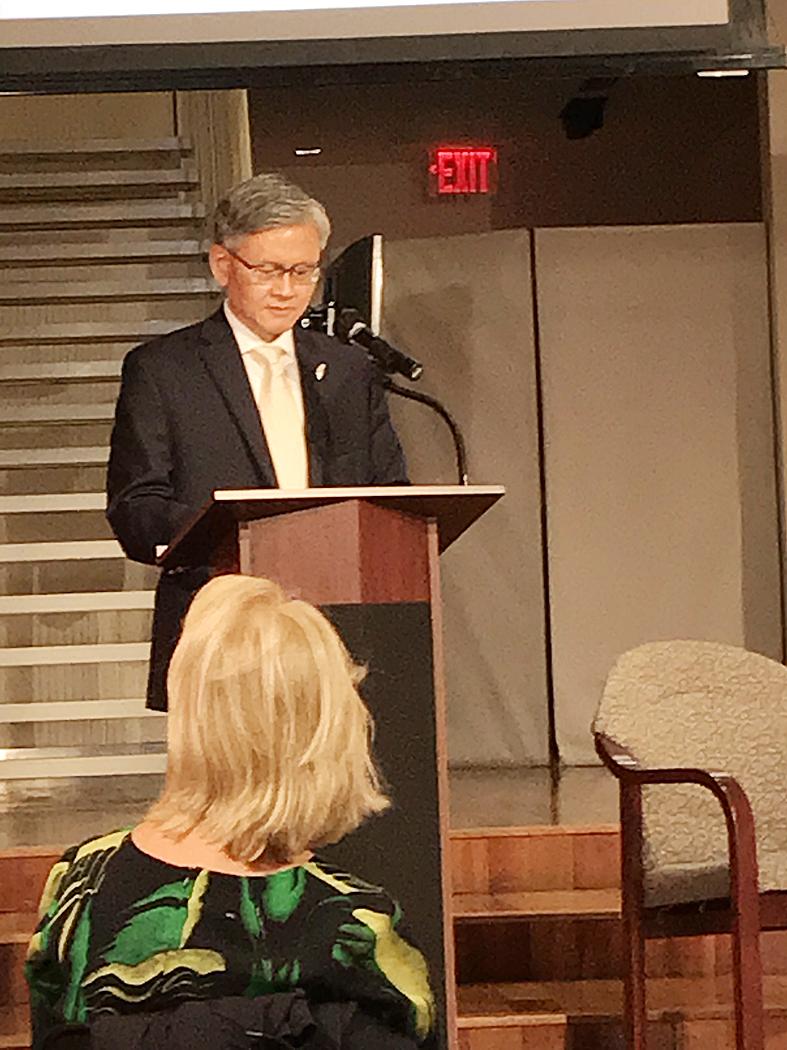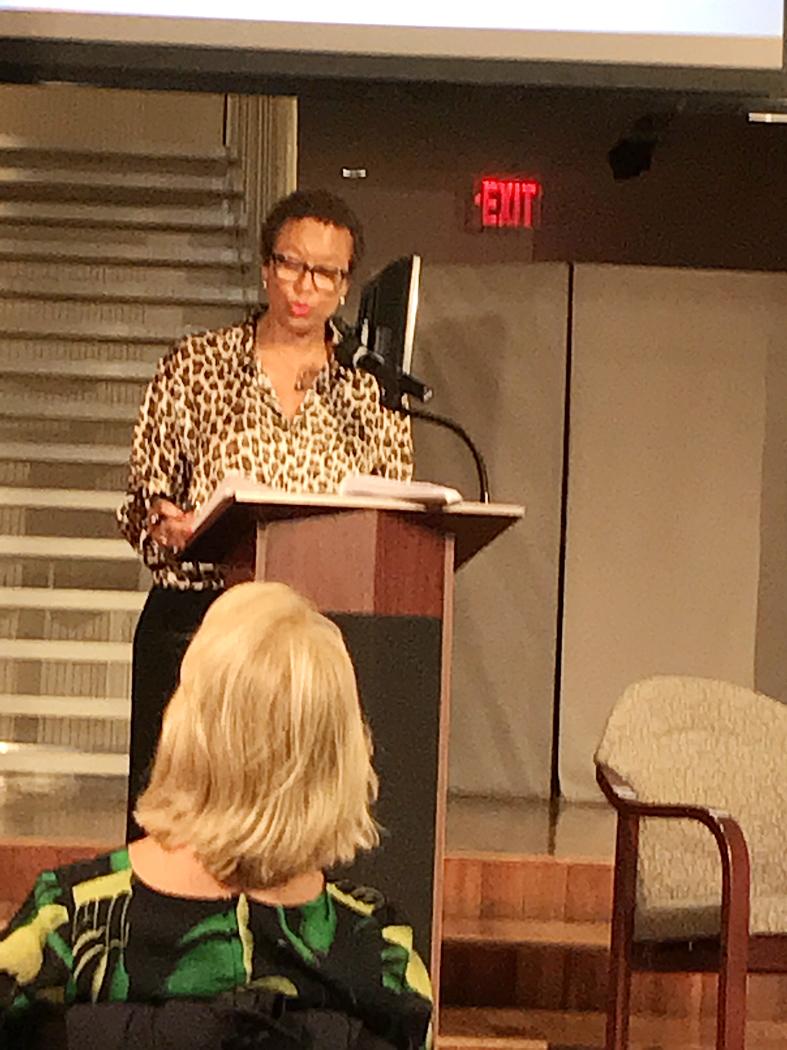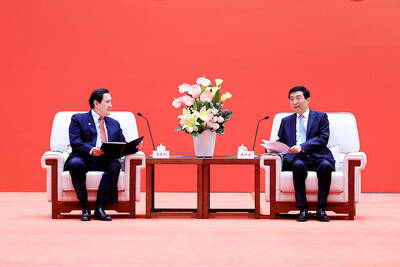Coinciding with the start of the 76th session of the United Nations General Assembly (UNGA), which kicked off on Sept. 21, Chiu Chen-Yu (裘振宇), a professor currently teaching architecture at the Bilkent University in Ankara, Turkey, was one of the speakers at the four-day Concordia 2021 Annual Summit in New York where he highlighted his joy but also his challenges in providing a safe living environment for Syrian refugees in Turkey.
The Concordia Annual Summit in New York, which analyzes and tries to find solutions for current issues, has become one of the most important events that run in parallel to the UN general assembly.
The Taiwan-born Chiu is also the director of the Taiwan Reyhanli Center for World Citizens, an organization that has been providing support for Syrian refugees in Turkey who have fled the 10-year war that has devastated Syria.

Photo: Manik Mehta
REFUGEES
“My grandparents were refugees from China in the 1940s and came to Taiwan to find refuge and safety. Tales of the hardships and uncertainties my own grandparents endured have left a lasting impression on me and made me sensitive to the plight of refugees,” he said of his motives to help refugees in an interview with the Taipei Times.
“I simply want to help and provide humanitarian assistance … while the work is not without risks like facing attacks and the like, it is rewarding to know that we are helping displaced people who have lost everything, family members and limbs in the conflict,” he added.

Photo: Manik Mehta
Though he initially faced skepticism amongst the local Turkish people, they gradually began to trust him. He has been engaged in helping Syrian refugees in Turkey for five years. His organization “runs out of funds most of the time and I have even spent all my savings for this cause and [have been] practically bankrupt since March this year. I raise money from the Taiwanese people … and the Taiwanese government is also helping us in our work.”
Syrian refugees have fled to Turkey, Jordan and beyond. Turkey alone has taken more than 3.7 million Syrians. Reyhanli, the focus of Chiu’s organization, is a small city bordering Syria in the southeastern Turkish province of Hatay. It is the main entry point for Syrian asylum seekers into Turkey during the escalating conflict. With help from the Taiwanese government and the Municipality of Reyhanli, Chiu’s nonprofit was established for improving “the quality, equality and sustainability of human conditions among Syrians and Turkish locals,” Chiu says.
Chiu was also a speaker at a special seminar on Syrian refugees organized by the Taipei Economic and Cultural Office (TECO) in New York. Although excluded from the UN due to China pressure, Taiwan has been taking its own initiatives to highlight issues of concern to the international community with the participation, mostly, of diplomatic missions of countries with which it maintains relations, as well as NGOs and experts.

Photo: Manik Mehta
SUSTAINABLE SUPPORT
TECO teamed up with the UN mission of St Vincent and the Grenadines, the Sovereign Order of Malta to the UN, the Center for Sustainable Development (Columbia University) and the Taiwan Reyhanli Center for World Citizens to jointly present the seminar that provided insights on creative and efficient ways to provide sustainable support for Syrian refugees and to strengthen resilience.
TECO in New York Director James Lee (李光章), recalled in his opening remarks at the seminar that Taiwan had teamed up since 2017 with a number of countries to provide humanitarian assistance to Syrian refugees, offering a wide range of items such as medical supplies, helping defuse mines and bombs.
“Taiwan has always been a willing partner of the United Nations and extended help in many humanitarian causes, including helping Syrian refugees” Lee told the Taipei Times on the sidelines of the seminar.
In her keynote speech, Inga Rhonda King, the permanent representative of St. Vincent and the Grenadines to the UN, praised Taiwan for providing international humanitarian assistance, even though several issues such as climate change and COVID-19 had made that effort more difficult.
“The Syrian refugees’ plight is very bad … without a political solution, the security situation will remain volatile. The socio-economic crisis [for the Syrian refugees] has worsened,” she said, urging all the parties concerned to work together while ensuring representation of women in the various bodies concerned and maintaining the threshold of 30 percent.
King said that the cost of Syria’s badly-needed reconstruction would be about US$250 billion.
By staging its own events in keeping with UN goals during the UNGA session, Taiwan is generating considerable sympathy and goodwill internationally. While China has spared no effort to isolate Taiwan internationally, the latter’s soft power poses a sharp contrast to the devious behavior of China in Tibet, Xinjiang and Hong Kong.

The canonical shot of an East Asian city is a night skyline studded with towering apartment and office buildings, bright with neon and plastic signage, a landscape of energy and modernity. Another classic image is the same city seen from above, in which identical apartment towers march across the city, spilling out over nearby geography, like stylized soldiers colonizing new territory in a board game. Densely populated dynamic conurbations of money, technological innovation and convenience, it is hard to see the cities of East Asia as what they truly are: necropolises. Why is this? The East Asian development model, with

Desperate dads meet in car parks to exchange packets; exhausted parents slip it into their kids’ drinks; families wait months for prescriptions buy it “off label.” But is it worth the risk? “The first time I gave him a gummy, I thought, ‘Oh my God, have I killed him?’ He just passed out in front of the TV. That never happens.” Jen remembers giving her son, David, six, melatonin to help him sleep. She got them from a friend, a pediatrician who gave them to her own child. “It was sort of hilarious. She had half a tub of gummies,

The wide-screen spectacle of Formula One gets a gleaming, rip-roaring workout in Joseph Kosinski’s F1, a fine-tuned machine of a movie that, in its most riveting racing scenes, approaches a kind of high-speed splendor. Kosinski, who last endeavored to put moviegoers in the seat of a fighter jet in Top Gun: Maverick, has moved to the open cockpits of Formula One with much the same affection, if not outright need, for speed. A lot of the same team is back. Jerry Bruckheimer produces. Ehren Kruger, a co-writer on Maverick, takes sole credit here. Hans Zimmer, a co-composer previously, supplies the thumping

There is an old British curse, “may you live in interesting times,” passed off as ancient Chinese wisdom to make it sound more exotic and profound. We are living in interesting times. From US President Donald Trump’s decision on American tariffs, to how the recalls will play out, to uncertainty about how events are evolving in China, we can do nothing more than wait with bated breath. At the cusp of potentially momentous change, it is a good time to take stock of the current state of Taiwan’s political parties. As things stand, all three major parties are struggling. For our examination of the